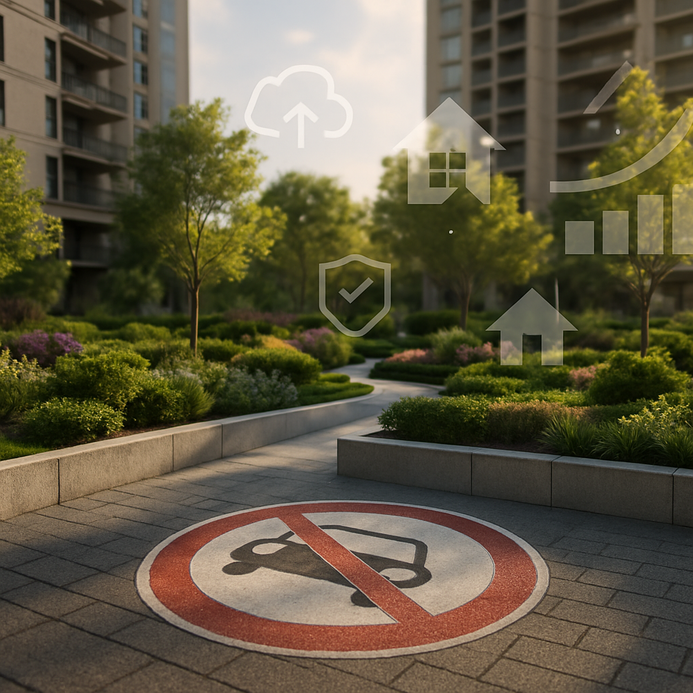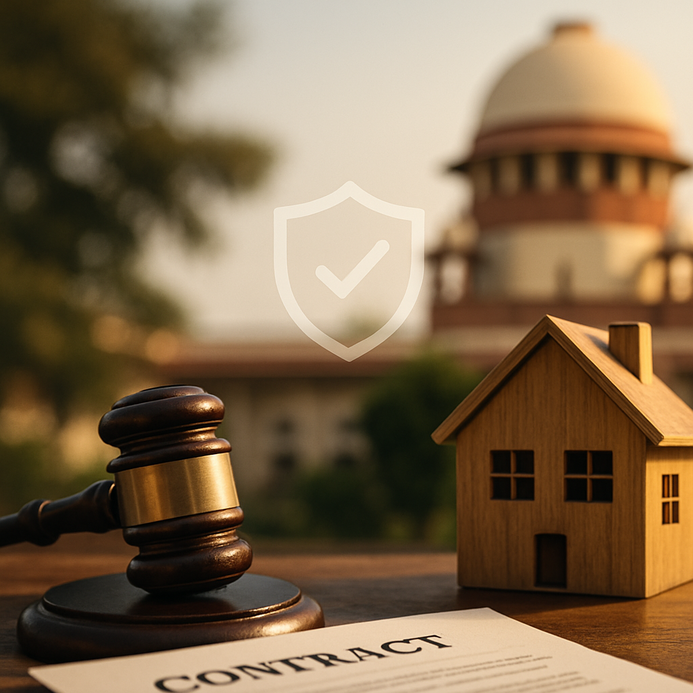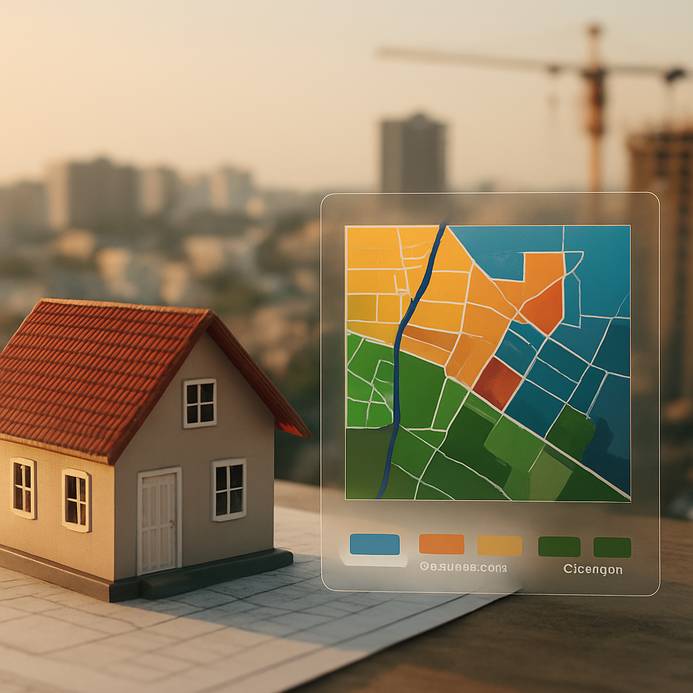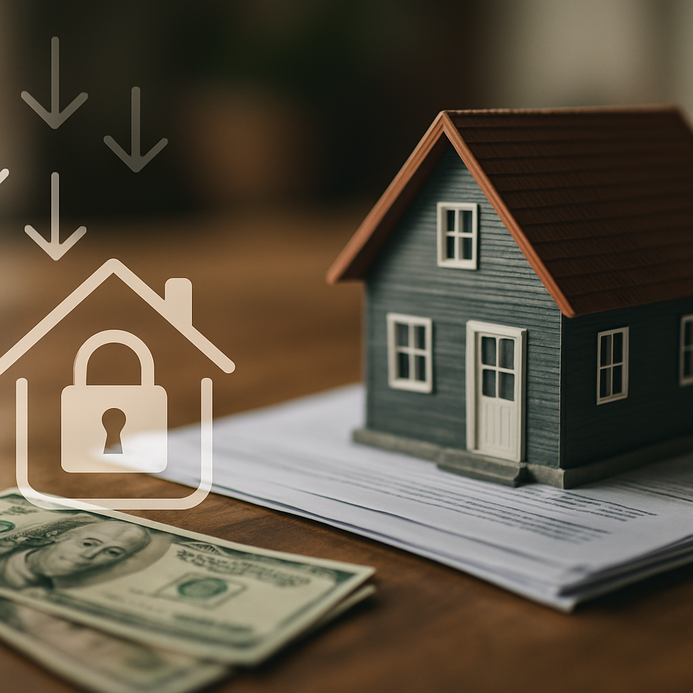What to Do When Your Builder Delays the Conveyance Deed
Understanding the Conveyance Deed
So, what’s a conveyance deed, anyway? It’s a pretty crucial piece of paper when it comes to transferring property, especially between builders and Resident Welfare Associations (RWAs). This document basically formalizes the ownership change, which means the property is legally recognized in the new owner’s name.
Breaking it down, a conveyance deed is a legal way to hand off property rights from one party to another. Just so you know, this document has to be signed and registered according to the Indian Registration Act of 1908 to hold any legal water.
Now, if a builder skips out on giving the conveyance deed after an RWA is formed, it can lead to some sticky situations. Without it, the RWA might really struggle to prove ownership and manage shared spaces and amenities. Here’s a quick look at some other types of deeds to help clarify:
| Types of Deeds | Key Features |
|---|---|
| Conveyance Deed | Transfers ownership from builder to RWA; legally binding |
| Sale Deed | For transferring ownership in a buy-sell agreement |
| Gift Deed | Transfers ownership without a monetary exchange |
For RWAs, it’s super important to grasp that the conveyance deed isn’t just a formality. It gives them the authority to manage and maintain those communal spaces, ticking off all the boxes in the Real Estate (Regulation and Development) Act (RERA). So, if that deed’s delayed, residents might wanna think about some legal action. Talking to property lawyers and possibly banding together as an RWA could speed things up. For more insights about different types of conveyance deeds, you might wanna check out Source and source.
Navigating the conveyance deed scene can help secure legal safety and stability for communities. Want more on the nitty-gritty of legal documents in real estate? Don’t miss our write-up on partition deeds and the ins and outs of RWA services.
Unveil the 50-50 payment plan
Importance of the Conveyance Deed for RWAs
The conveyance deed? It’s a big deal for RWAs! It establishes legal ownership and gives authority over shared areas and infrastructure within communities. Knowing what a conveyance deed means is key, it backs up the rights and responsibilities of residents.
Empowering RWAs Through Legal Ownership
Basically, a conveyance deed hands over property ownership from builders to the RWA. It’s the backbone for residents, letting them take charge of parks, clubhouses, and pathways.
Key Aspects of the Conveyance Deed:
| Aspect | Description |
|---|---|
| Legal Ownership | Grants RWAs official ownership of common areas. |
| Operational Authority | Empowers RWAs to make decisions about community maintenance and upgrades. |
| Conflict Resolution | Lays down a legal path for resolving disputes between residents and builders. |
| Financial Accountability | Makes sure funds are managed well for maintenance and shared projects. |
| Regulatory Compliance | Ensures adherence to local laws regarding property management and upkeep. |
The deed also sets the tone for property obligations and rules about shared facilities. It’s crucial for residents to know what they’ve signed up for to protect their interests.
For a deeper dive into why the conveyance deed matters, check out this resource: source.
RWAs need to prioritize getting this document. It builds a proactive community, giving members legal rights while fostering a cozy, harmonious living space. Always keep those documents on hand for transparency sake.
For more on property documents and their effects, take a look at our articles on legal options with RERA and the importance of fair RWA elections.
Common Causes of Delay in Conveyance Deed Transfer
Delays happen especially in the conveyance deed process. Knowing why these hold-ups occur can help homeowners deal with them better. Here are some usual suspects:
| Cause | Description |
|---|---|
| Unresolved Legal Issues | Legal problems or claims against the property might stall the conveyance deed transfer. |
| Financial Conflicts | If there are payment disputes, unpaid dues, or loans, you’re looking at delays. |
| Inadequate Communication | Lack of clear communication between builders and homeowners can cause confusion and slow things down. |
What is a Conveyance Deed? Honestly, it’s just a legal document that switches property ownership over from one party to another. It’s significant in transactions, ensuring both parties are covered.
And just so you know, if delays crop up, there are legal avenues to explore like filing complaints with proper authorities or considering legal action. It can be overwhelming, but handling delays quickly is essential.
For more info on conveyance deeds and what they mean, check out these helpful links:
Getting clued up can help homeowners take action if their conveyance deed is delayed.
Step-by-Step Legal Guide to Address Delays in the Conveyance Deed
Dealing with conveyance deed delays after forming an RWA can be a real pain. But don’t fret! Here’s a simplified guide on what to do in Telangana to tackle these delays head-on.
Understanding the Conveyance Deed
A conveyance deed is super important, it transfers ownership from the builder to the buyers. Once you grasp its meaning, navigating transitions becomes clearer.
Step 1: Review the RWA Formation Agreement
First things first, check your RWA formation document for timelines about when the conveyance deed is supposed to get done. If there are delays, mark them that’s ammo for a potential legal notice.
Step 2: Draft a Legal Notice
A legal notice is your way of formally hit the builder with the facts. Make sure to include:
- Property Details: Location, specifics. Be clear.
- Timeline: When was the deed supposed to be ready?
- Proof of Delays: Any emails or letters regarding the delay.
- Demand: What do you want from the builder? Like, “Get this deed moving.”
- Legal References: Mention relevant housing laws to back up your claims.
If the builder ghosts you, it’s time to escalate. File a complaint with the Telangana Real Estate Regulatory Authority (RERA). Bring your documentation and your drafted notice. This might just speed things up.
Step 4: Explore Legal Options
Still no progress? Consider legal action. Chat with a lawyer who knows property law. You might look into compensation for the wait or push the builder to finish the deed.
Table: Steps to Take if Your Builder Delays the Conveyance Deed
| Step | Action | Outcome |
|---|---|---|
| Review RWA Document | Check timelines for deed transfer | Establishes legal grounds |
| Draft Legal Notice | Notify builder with property details and demands | Formal communication of intent |
| File Complaint with RERA | Escalate to regulatory authority | Potential resolution of the issue |
| Seek Legal Advice | Obtain legal counsel for next steps | Structured approach to conflict resolution |
Check out this article on Conveyance Deeds Vs Sale Deed for a comprehensive understanding. Interested in property transfers? Don’t miss Conveyance Deed | Wevaad.
Following these steps can clarify what’s expected of everyone involved, making property ownership transitions smoother and easing the stress for both homeowners and builders. More info on property laws, dispute resolution, and RWA hassles can always help.
Taking Action: Filing a Complaint with TS-RERA
If your builder’s dragging their feet on that conveyance deed, hitting up the Telangana Real Estate Regulatory Authority (TS-RERA) with a complaint is smart. Here’s how to make it happen.
Documentation Required for Filing a Complaint
Ready to file? Gather your documents:
| Document Name | Description |
|---|---|
| Builder Agreement | Your sales contract from purchase time. |
| Payment Receipts | Proof of what you’ve already paid. |
| Communication Records | Any emails or letters you’ve sent or received from the builder. |
| Society Formation Documents | Minutes from RWA meetings. |
| RERA Registration Details | The builder’s TS-RERA registration number. |
These documents back up your claims, showing you’ve been let down in getting that conveyance deed.
The Complaint Process
- Visit the TS-RERA Website: Go to the official TS-RERA website.
- Register Your Complaint: Use their online system to submit your complaint; fill out everything accurately.
- Attach Documents: Include all the essential papers. Neglecting anything could slow down the process.
- Receive Acknowledgment: After you submit, you’ll get an acknowledgment number. Yep, you’ll want that to track your complaint’s status.
Strategies for Successful Resolution
To up your chances of getting a good outcome, keep these tips in mind:
- Be Clear and Concise: Stick to the facts. Leave out the emotional fluff.
- Follow Up Regularly: A little persistence can keep your complaint moving in the system.
- Seek Legal Assistance: Don’t hesitate to consult a legal pro for help if you need it.
Getting a grip on what the conveyance deed means is so crucial. This document is how ownership moves from builder to housing society, and sorting out any delays is vital.
For a deeper dive into dealing with delays and taking action against builders, check out this resource on conveyance deeds.
Filing a complaint with TS-RERA is an essential step for any community facing delays in obtaining crucial documents like conveyance deeds. Following these steps protects your rights and helps you stay on track.
FAQ
1. What is a conveyance deed?
A conveyance deed is a legal document that transfers ownership of property from one party to another, typically between a builder and an RWA.
2. Why is a conveyance deed important for RWAs?
It establishes legal ownership and grants RWAs authority to manage and maintain shared areas and amenities, ensuring residents’ rights.
3. What can cause delays in obtaining the conveyance deed?
Common causes include unresolved legal issues, financial conflicts, and inadequate communication between builders and homeowners.
4. How can RWAs address delays in obtaining a conveyance deed?
RWAs can review RWA formation agreements, draft a legal notice, file a complaint with the RERA, or seek legal advice.
5. What documents are needed when filing a complaint with TS-RERA?
Essential documents include the builder agreement, payment receipts, communication records, society formation documents, and RERA registration details.













